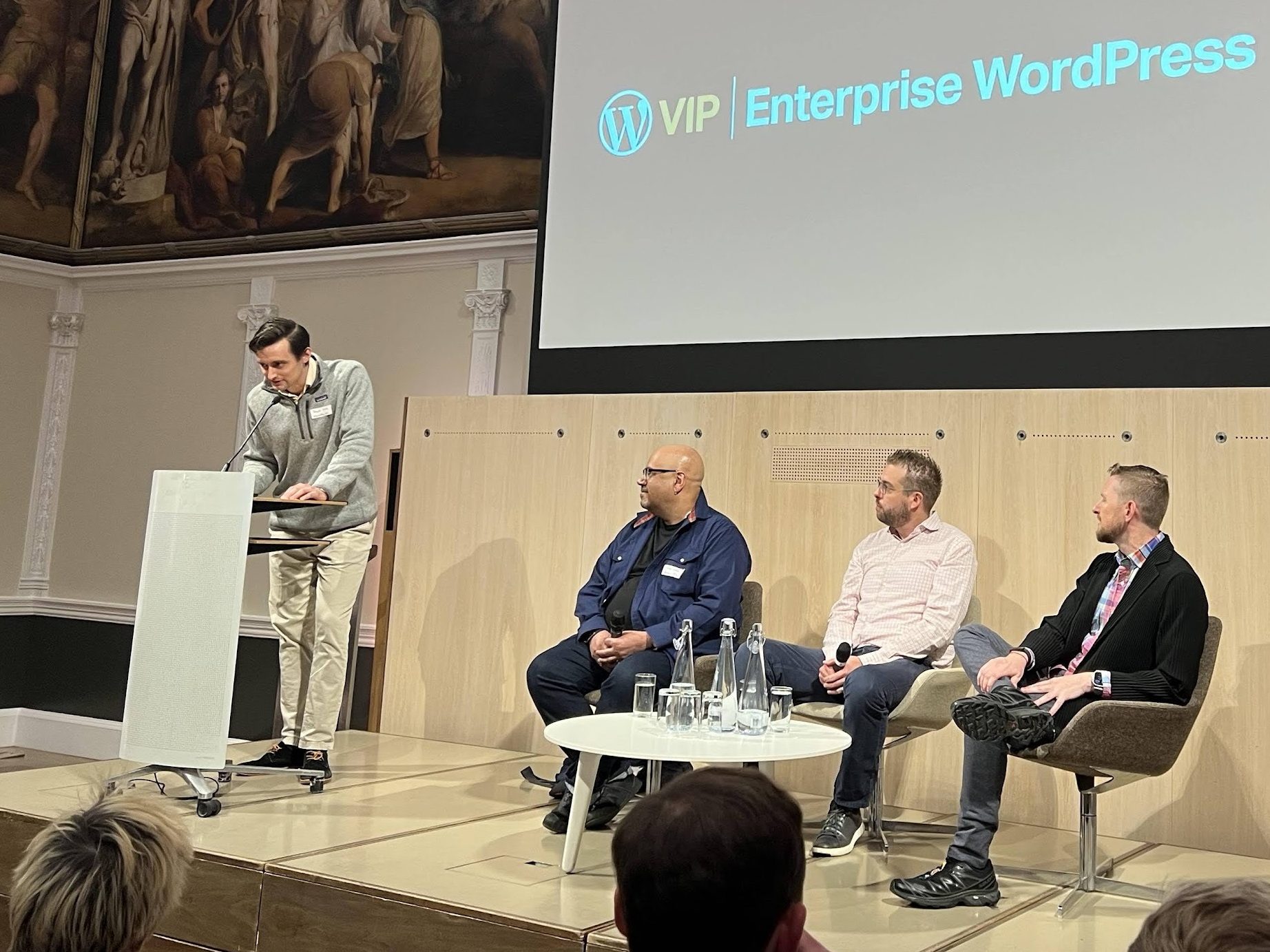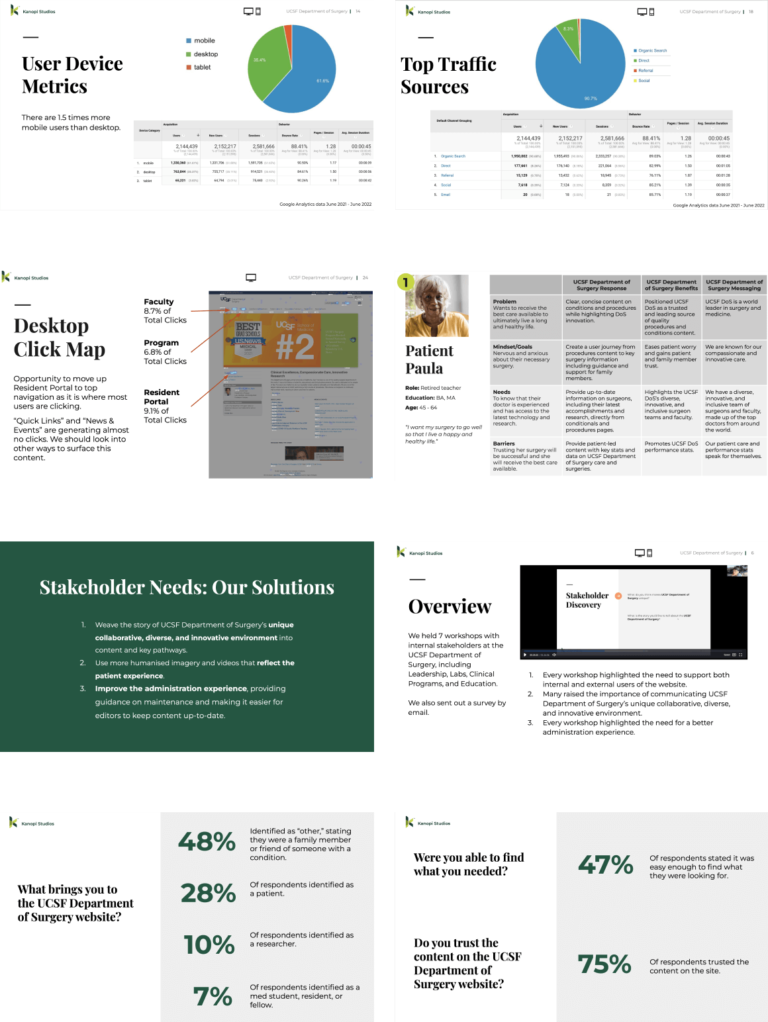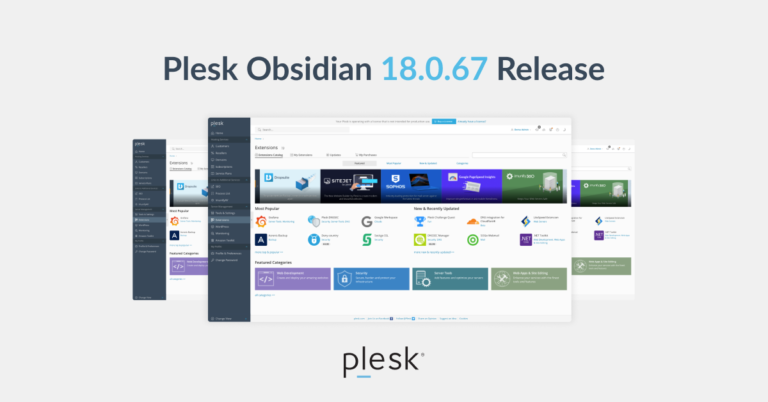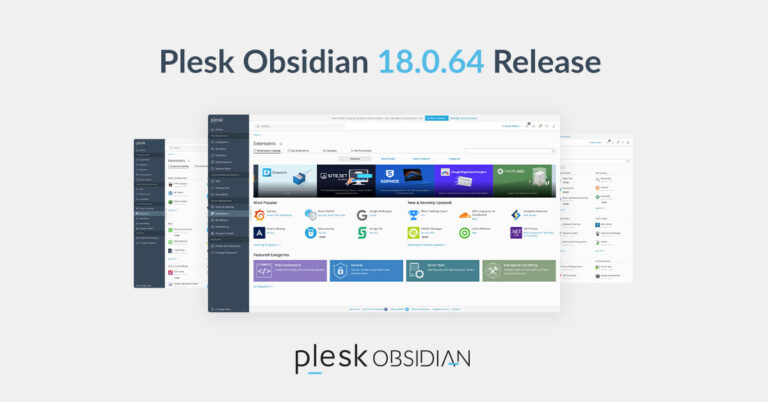People never remember that one thing they saw one time, over there. There’s no retention. Showing up over and over and over again with the same message is the only way you make a lasting impression.
Who are you, what’s your job title, and where do you live?

I think the basic expectation here is that you’re a human. You’re a person. You’re not just a work robot. You need to perform, yes, and sometimes there are high-activity periods where you need to perform a lot. But those high-intensity periods have generally been the kind of challenges I look forward to, and the baseline understanding beneath them is that you’re a person who cooks and cleans, goes on date nights, has hobbies, reads books, etc.
What is WordPress VIP?
At WordPress VIP, our product marketing team mostly focuses on messaging and positioning, competitive intelligence, sales enablement, analyst relations, product launches, pricing and packaging, and general go-to-market strategy.
WordPress VIP is the content platform used by larger organizations—we specialize in scale and security. If you get millions or billions of hits to your website, and publish a ton of content, we’re the folks you want to work with. We provide a Content Management System (CMS), scalable infrastructure, a development platform, content analytics, and world-class support.
An example here would be how Times Media simplified their publishing workflow by 62%—with a newsroom as large as theirs, that’s a lot of efficiency.

Can you provide some examples of what WordPress VIP does?
That’s a lot of stuff. The most important part is messaging and positioning. Product marketing creates the doctrine. I have a wildly egomaniacal way of describing product marketing, which I largely use in a tongue-in-cheek manner, so please keep that in mind … but sometimes I describe product marketing as being one of Matthew, Mark, Luke, or John. The product marketer will write an internal strategy document, which then serves as a kind of “bible” for various people at the company. Then, various “priests” will create a sermon from it for whatever they need that week—a content marketer might write a blog about your topic, a salesperson might create a PowerPoint deck, a social media marketer might create some tweets, someone might update the website … So on and so forth. It’s a bit of a silly way of describing it, and I really don’t know much about religion, so I’m probably getting it all wrong.
First, be a nerd. Be genuinely interested in the technology, understand why people use it, what alternatives they have, and what it produces for them.
What’s it like to work at a fully distributed company with a worldwide team and culture guided by a Creed? Welcome to “Life @ Automattic,” an occasional series of Q&As with the people behind the products. Today we spoke with Doyle Irvin, a senior product marketing manager for WordPress VIP.
Companies like Salesforce, CNN, Capgemini and others use our platform to empower their content teams to produce web content both faster and smarter. With WordPress VIP, their teams can create more content, activate it across channels, prove its value, and refine their content initiatives—all while ensuring the security and reliability they need to operate at enterprise scale.
We have a ton more case studies to read through if you’re interested.
What are your responsibilities as a Product Marketer?
I’d say about half of my work is synchronous and the other half is asynchronous. About a quarter of it is on Slack, a quarter on P2, a quarter via Google docs / email, and a quarter via live chats in meetings.
Slack Analytics tells me I send about 75 messages a day on public channels, and I’d estimate about triple that on locked channels/DMs, so roughly 200-300 messages a day.
The main challenge is finding the proper thing to focus on, and cutting out all the noise. I get a ton of pings every day. There are a ton of projects that can seem interesting and influential, but end up being neither of those. Keeping the main thing, the main thing … is the main thing! I think this is true for product marketers at any kind of company, and especially true for pre-IPO companies.
Thanks for spending time with us, Doyle!
We basically just try to make creating and publishing content more efficient, effective, and reliable.
The point is—there’s variation. The most important skill is in determining: where are we inefficient as a business? And how can I influence that as a marketer?
Our team is distinct from much of the rest of Automattic, in that we focus on the enterprise customer base, instead of the consumer customer base. Automattic’s other products are built for individuals, as well as all businesses who aren’t yet at the enterprise level. On the other hand, VIP’s products serve very large and enterprise-level businesses.
What’s different about VIP Marketing?
I think the main thing I’ve learned is that consistency is key. I feel like that’s so table stakes that “I already knew that,” but I’ve deepened my understanding of it here.
Or how Network N used our analytics to improve ad revenue by 75%, or how Backstage’s content marketing increased company revenue by 25% using our conversion data.
Please walk us through a typical work day.

Founded in 2005 by Matt Mullenweg, the co-creator of WordPress software, Automattic has been recognized as one of the world’s most innovative companies. We’re the people behind WordPress.com, WooCommerce, Jetpack, Simplenote, Longreads, WPScan, Akismet, Gravatar, Crowdsignal, Cloudup, Tumblr, Day One, Pocket Casts, WordPress VIP, and more. As of this writing, there are 1,951 Automatticians in 95 countries speaking 120 different languages. Maybe you can be one of us.
We are building out our marketing team—doubling its size, in fact. 2023 is the year of the platform and the people. We’ve done a ton of work to deepen our understanding of our customers, to create a backbone of data-driven operations, to collect the right data about various parts of our go to market, and to develop strategy for how we can grow—that’s the platform. Now, we’re hiring for the roles that we’ve identified in our strategy work as being important, and bringing that work to market—that’s the people (and their output!).
For example, at Apple, product marketing is deeply involved in customer research and developing the roadmap. At Salesforce, product marketing runs the product launches. At my previous company, a very small startup, product marketing meant “we’re the engineers, you’re the ‘business guy,’ land some deals.”
To do this, I try to find the data, if it exists. Metrics on business health. Where in the funnel are we struggling? And why? Most of the time this is qualitative data, which makes it fun.
Product Marketing as a discipline sits between sales, marketing, customer success, and product management/engineering.
What part of your role do you enjoy the most?
The web is the most scalable way of having a direct relationship with your customers. Social media is all owned by the big tech companies and thus out of your control, “email is dying” has been a refrain for the last 15 years, and non-digital means aren’t scalable—the point here is that we believe in the web, as in your website, and so do our customers.
The people I work with the most are the other folks on the marketing team, and the sales team. Lately I’ve been working a ton with Ops and Finance to get major reporting projects and data projects over the line. In the past I’ve had periods where I mostly worked with Customer Success and Product Management for periods at a time.
Given that “sales, marketing, CS, and engineering” is basically a whole company besides HR and Finance … you can say that product marketing has a very broad aperture of possible-things-you-can-do, which is both its biggest perk and its biggest trap. It’s very, very easy to get spread too thin and do a lot of things poorly instead of a few things exceptionally.
Connect with Doyle on LinkedIn.
How would you describe the culture of Automattic and the people you get to work with?

A current project I’m working on that I find exciting is involved in making our go to market more accurate. Our products are used by companies that publish lots of content and get tons of results from their digital presences. However, there can be two identical-seeming companies—same revenue, same industry, same employee headcount, same location, etc. etc. etc.—that have wildly different approaches to their content. One company might be very online and the other might get a ton of their business via, say, direct mail or something.
There’s two things.
What challenges have you faced on the job?
Hi! My name is Doyle Irvin. I’m a senior product marketing manager for WordPress VIP, and I live in San Francisco—I’m in Noe Valley, the neighborhood with all the strollers.
It’s a combination of the people and the variations in what I am primarily doing. A long time ago, in my early twenties, I had roles at other companies where I did the same thing over and over and over again, and I did it for people I was ambivalent about. This is about as opposite to that as it gets.
To the extent that you can share them, what are VIP’s plans for this year?
It’s just a very different marketing motion. Instead of working to get a bunch of individuals to make a decision they could cancel next month, we’re working to get a committee of people to sign up for major contracts. Businesses don’t want to change their CMS any more often than every 5+ years, so there’s a lot more diligence involved, there’s a lot more human-to-human interaction, and a lot more relationship building.
Has the job taught you anything about life?

An average day for me has anywhere between two to five hours of Zoom meetings, with generally about three. I’m in California, which means that I wake up last out of all the time zones (except Hawaii). What that means is that the mornings are generally more about collaboration and the afternoons are more about individual focus.
Depending on the company, product marketing can influence everything from “What features should we develop?” to “How do we sell these products?” to “How do we retain our customers by making sure they get value from our products?”
What advice would you offer to readers who might be interested in doing what you do?
Another example would be how we ensured that our customer’s websites can handle immense traffic during their most important days. FiveThirtyEight served more than a billion hits in a week.
On P2, which I think of as the more “measured and diligent” workspace, our stats tell me that I post/comment 2.5 times per day on average, and they’re generally longer/more collected.
Second, figure out how to communicate things simply, and tell a story that sticks. I use my “product marketing is an apostle” metaphor because people laugh at me … and then remember it. When you look at each company individually, and do your research, you can identify which would be a good customer and which wouldn’t. But when you’re trying to identify gold out of a list of 300,000 companies? That’s much harder, and you need to get smarter about your data sources and enrichment. The company is full of what I kind of think of as “normal internet people.” Like, not internet people in the kind of sense that makes us all grateful for spam filters, but instead normal folks who are intrinsically interested in the web, the internet, technology, and so on. We’re not criminally online but most of us were trolling forums as teenagers.
ABOUT AUTOMATTIC
The project I’m working on is involved in making us smarter in that kind of way, so that all of our efforts are targeted at companies that have a much stronger need for our products. This will reduce our acquisition costs.





